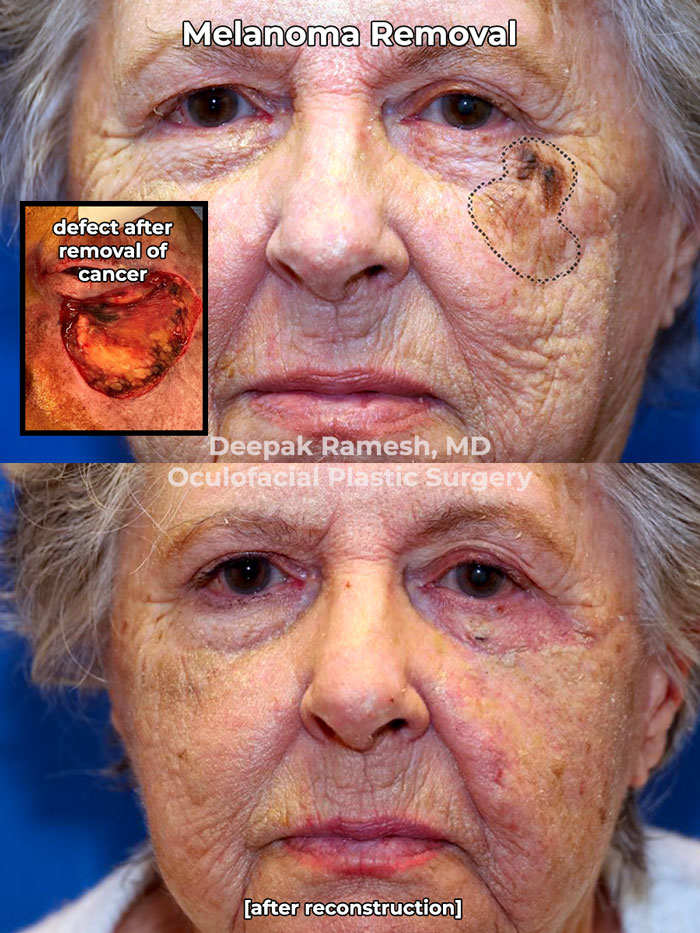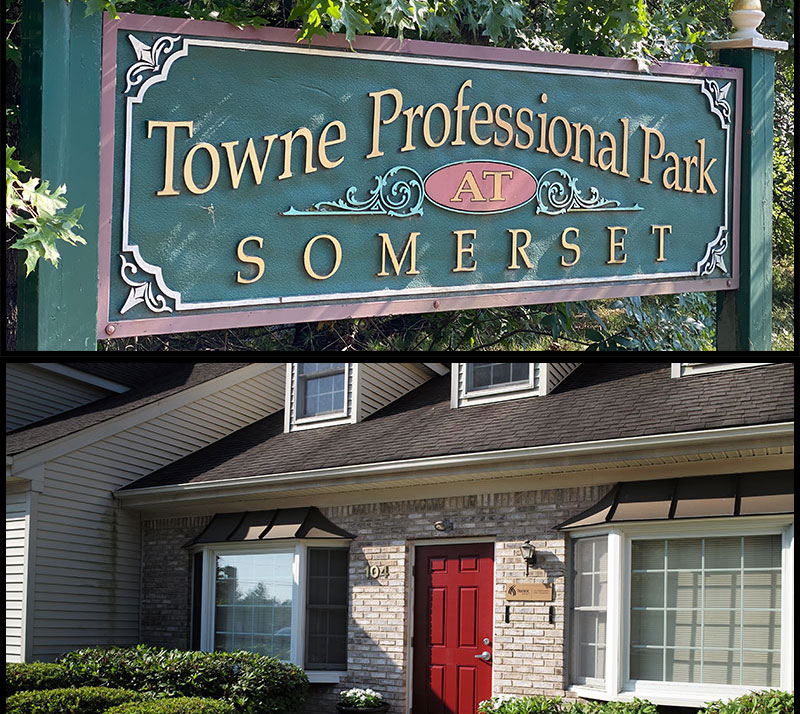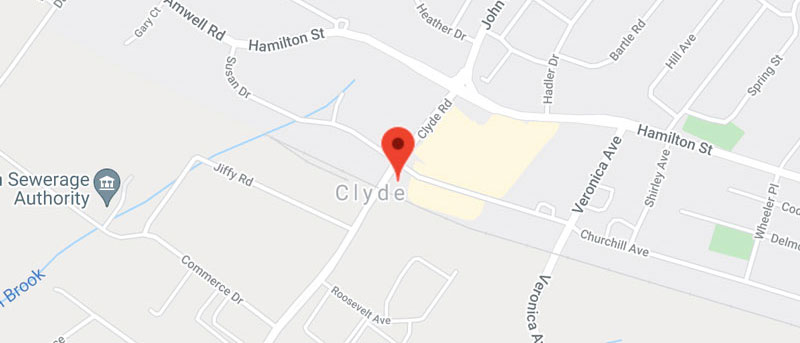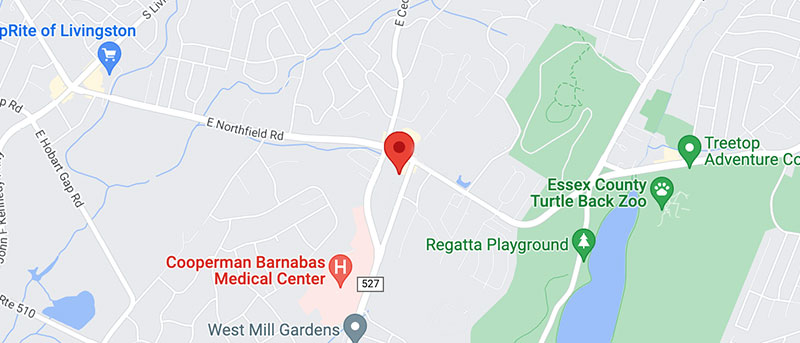Sun damage can cause not only unsightly blemishes and wrinkles but, in many cases, skin cancer. Skin cancer in the eyelids, face, or neck is typically one of three types – basal cell, squamous cell, or melanoma. Of the three, basal cell skin cancer is most common and has the highest chance of successful treatment, while melanoma can be the most dangerous. The only sure way to know if a blemish or bump is cancerous is to perform a biopsy, where we will take a very tiny sample and examine it under the microscope to check for cancerous cells.
Skin Cancer

What is skin cancer?

What is Mohs surgery?
Mohs surgery is the surgical procedure used to treat basal cell carcinoma, squamous cell carcinoma, and some types of melanoma. During this procedure, thin layers of cancerous skin tissues are progressively removed and examined until all the cancer cells are removed. The primary goal of Mohs surgery is to remove all the cancerous skin cells possible while causing minimal damage to healthy skin tissues. Mohs surgery allows surgeons to ensure that all cancer cells are removed, thereby reducing the need for additional surgeries and recurrence.
How is surgery performed?
Depending on the size of cancer, we may work alone or in conjunction with a dermatologist to remove all the cancerous tissue. Once this has been removed, we will reconstruct the area with great care to make it look like you never had surgery. Surgery is performed under twilight anesthesia. Patients can have bruising and swelling around the area for 1-2 weeks, with minimal pain. Patients are typically ready for formal social functions within 6 weeks. The results of Mohs surgery are immediately available, so you don’t have extended wait periods.
What happens after the surgery and recovery period?
Patients with a history of skin cancer have a higher risk of skin cancer recurrence than others. Half of all people diagnosed with some form of skin cancer eventually develop skin cancer again within 5 years. As such, even after you’ve recovered completely, you must be vigilant for signs of skin cancer. You should also go for regular follow-up appointments and routine examinations to look for new signs of skin cancer. You can expect at least one to two examinations per year for mild cases of skin cancer and more frequent examinations if you have aggressive skin cancer.
Why choose Dr. Ramesh?
Dr. Deepak Ramesh is a board-certified oculoplastic surgeon specializing in oculofacial, orbital, cosmetic, and reconstructive surgeries from the prestigious Jules Stein Eye Institute at the University of California, Los Angeles. He specializes in all aspects of facial plastic surgery, including Mohs surgery and reconstruction after skin cancer treatments. Depending on the size of the cancer, your surgical plan is curated individually or in collaboration with a dermatologist. After removing cancer, Dr. Ramesh curates personalized reconstruction plans to wipe away all traces of skin cancer and restore your appearance.

Contact Us
Schedule an
Appointment
BOOK NOW

The Center for Eye and Facial Plastic Surgery
35 Clyde Road, #104
Somerset, NJ 08873
Monday – Friday: 8:30a – 4:30p
Livingston Office
22 Old Short Hills Rd Suite 202
Livingston, NJ 07039
Monday: 9:00a – 5:00p
Tuesday: 12:00p – 7:00p
Wednesday – Friday: 9:00a – 5:00p
P: (609) 608-0142
F: (855) 644-0469



